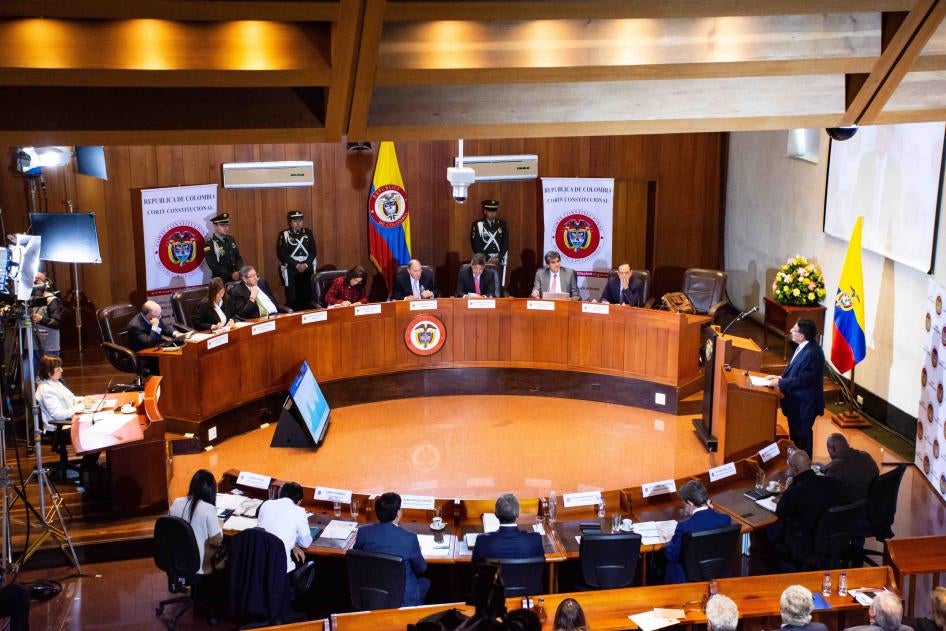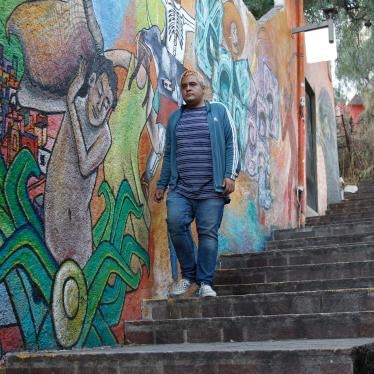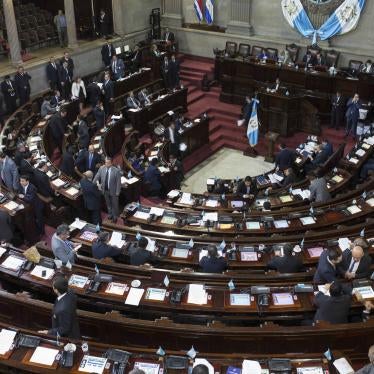In a landmark ruling, the Colombian Constitutional Court has recognized a non-binary gender marker. The high court’s decision—the first of its kind in Latin America— echoes developments around the world, where legal recognition of gender diversity is gaining pace, and is a key step in protecting human rights.
While lower courts in places like Mexico and Brazil have issued similar rulings recognizing third gender classifications for non-binary individuals, the Colombian ruling is the first to apply across a Latin American country, an important legal precedent for gender diversity in the region.
The case originated in Medellín in 2019 when Dani García Pulgarín petitioned the National Registry of Civil Status to change the gender marker in her national ID card to a third option. The institution responded that only “M” or “F” was allowed. In 2021, García petitioned the Ninth Notary of Medellín to change her legal name to “Dani,” a gender-neutral name, as well as her gender marker. The Notary also refused.
In 2015, after the court ruled that people could change the gender to “M” or “F” on their documents, García had modified her legal gender to “F” based on her physical appearance. Yet, while she uses the “she” pronoun, García does not identify as either a woman or a man, which were the only options available to her in 2015.
García says she continues suffering discrimination due to her gender identity and expression, including in trying to get jobs and health care. She says National Police officers have mocked her due to the “F” marker on her identity document.
Last March, García filed a petition to overturn the decisions by the National Registry of Civil Status and the Ninth Notary of Medellín.
The case reached the Constitutional Court, which, in a decision released in recent days, found that García’s rights to equality, human dignity, legal personality, and free development of personality had been violated. The court held that when the name and sex in identity documents do not reflect one’s identity “it hinders the projection of one’s own gender in society and fosters scenarios of discrimination and exclusion in the public and private spheres.”
The court ordered the Ninth Notary of Medellín to issue García a birth certificate with a non-binary classification and the National Registry of Civil Status to issue her a congruent national identification card. It also called on the National Registry of Civil Status, as well as the National Government, to make the necessary adjustments within six months to allow Colombians to opt for a non-binary gender marker in their identity documents.
García, who identifies as a travesti, had petitioned the court for an “X” or “unspecified” gender marker, and so the decision is not the outcome she sought. Nevertheless, a non-binary gender marker, which the court interprets as anything other than “M” or “F,” has been welcomed by activists in Colombia who believe this new legal category will adequately accommodate non-binary people.
While some governments only recognize legal changes to Male or Female, over a dozen countries, such as Malta, India, Nepal, and the United States, already allow for other options. The Netherlands is planning to scrap gender markers from identity documents altogether.
Last July, Argentina became the first country in the region to issue national identity documents and passports that include “X” as an inclusive a third gender category. This advancement was not a legal precedent like in Colombia, but came after by President Alberto Fernández issued a decree to accommodate any person who “does not feel included in the masculine/feminine binary.”
The International Civil Aviation Organization (ICAO), the United Nations agency that sets global regulations for machine-readable passports, allows for three sex categories: female, male, or “X” for unspecified.
International law supports such recognition. The International Covenant on Civil and Political Rights, which Colombia has ratified, protects the rights to recognition before the law, privacy, and nondiscrimination. To fully respect these rights, countries should not only allow people to change from “F” to “M” and vice versa; they should also provide them with an “X” or equivalent option.
In a 2017 advisory opinion, the Inter-American Court of Human Rights called on governments to establish efficient and inexpensive legal gender recognition procedures. As Colombia’s Constitutional Court notes in its ruling, the advisory opinion acknowledged the existence of identities that do not fit in the male/female binary and held that they, too, must be protected from discrimination.
With this ruling recognizing non-binary gender markers, Colombia continues to chart a human rights-based path when it comes to equality for all its gender-diverse residents. In June 2015, the Ministry of Justice implemented a ruling from the Constitutional Court and issued a decree allowing people to modify the gender marker noted on their identification documents to “M” or “F” without prior judicial approval.
Countries in the region should join Colombia and Argentina in legally recognizing gender diversity through simple, administrative procedures. Not only is it required by international law, but it will also go a long way to fostering equality, tolerance, and inclusion for all.










